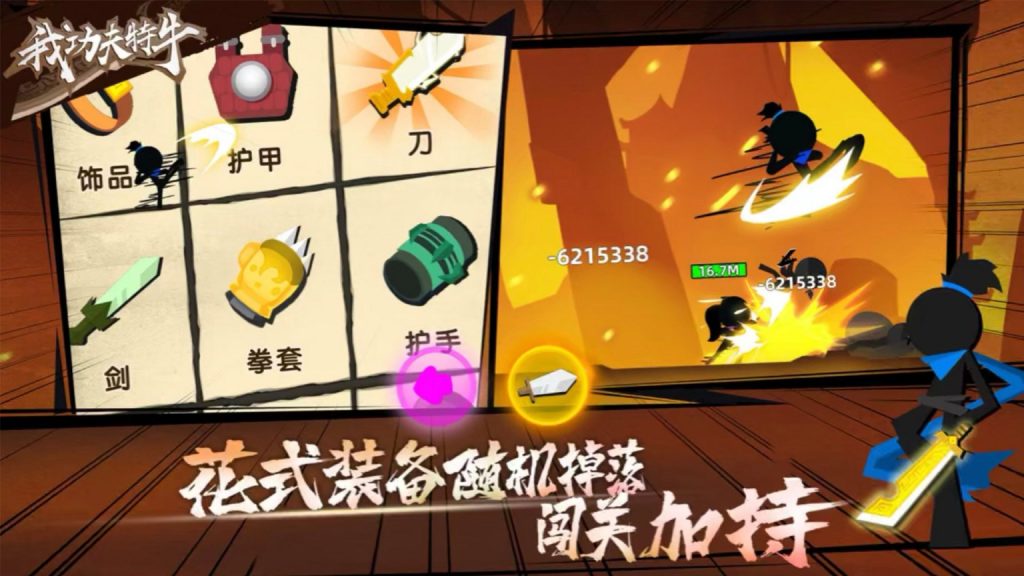To understand what Bytedance is doing in gaming, you have to understand its unique approach to corporate strategy.

ByteDance’s ‘Combat of Hero,’ seen here in a screenshot taken March 16, led games downloads in Japan for four days in March, suggesting the arrival of a new power in gaming. (Image credit: ByteDance)
Bytedance, the owner of TikTok, keeps butting up against Tencent, one of China’s biggest tech companies. Bytedance started as a news aggregator but has quickly moved into social media. Now, with their new gaming division, they’re moving into Tencent’s home turf. Tencent, meanwhile, has done its utmost to block competitors from piggybacking growth off their social network—most recently by blocking links to Bytedance’s enterprise productivity platform.
Bottom line
Bytedance isn’t going after just Tencent—it’s trying to grow in every direction all at once. Its gaming play doesn’t look like a serious threat to the king of gaming. For now, keep an eye on it but don’t sell your Tencent stock.
A gaming play
Last week, the Beijing-based startup obtained its first license for one of its mobile games from Chinese regulators. It is now able to legally publish it to China’s multi-billion-dollar gaming market. Bloomberg reported in January that the company is also building a gaming division that will hire more than 1,000 employees and there are already two games on the team’s launching pipeline. The company’s casual mobile game Combat of Hero became the most downloaded free iOS title in Japan for four consecutive days since March 7, South China Morning Post reported.
Try everything once
To understand what Bytedance is doing in gaming, you have to understand its unique approach to corporate strategy. In an internal letter (in Chinese) sent to employees Thursday, CEO Zhang Yiming reminded the company about their motto: “Develop a company as a product.”
The basis of the company’s products is a recommendation algorithm with a particular approach: it’s willing to make a low stake bet on anything. The algorithm takes every post a user makes on, say, Douyin, and shows it to around 100 people. If those 100 people like it, it shows it to a few more, and a little more, until the post stops getting likes or it’s been seen by every person on earth (and the three on the international space station). Zhang is likewise willing to countenance any harebrained business idea for a little bit, and then add resources if they work out.
No planning
For Zhang, business strategy is a numbers game: the more apps they launch, the more chances they have for lightning to strike. Chinese media calls the approach an “A/B testing” model. The company has a unique flat-corporate structure, according to a report by The Information. It enables its many product managers to report directly to Zhang, and positions such as chief marketing or chief technology officer are absent from the company.
Under that structure, project managers have a high degree of discretion. They are encouraged to try new projects without weighing the pros and cons ahead of launch. The apps are then judged on their market performance. High-performing apps receive more resources from the company while poor performers are quickly discarded.
Plenty of failures
You’ve heard of Bytedance’s successes. But it’s put people on dozens of projects you’ve never heard of. As a former Bytedance employee told Chinese media, the apps people know are just “the tip of the iceberg”—“You see a few tens of apps being released, but in the meanwhile, there are probably a few hundred being developed.” Most never see the light of day.
Bytedance has tried to get the data itself. In 2019, Bytedance launched two messaging apps—Feiliao, or Flipchat in English; and Duoshan, a Snapchat clone. Neither got a foothold against WeChat. Feiliao, an app that combines instant message and forum functionalities, was downloaded around 10,000 times worldwide in February, while Duoshan was 400,000 times, according to data from Sensor Tower. WeChat, by comparison, saw around 3 million downloads in that month.
Beyond Bytedance’s well-known apps, it’s also made little-known plays such as Gogokid, an online education platform; Everphoto, a cloud storage service; and the Smartisan e-commerce platform.
Gaming is an experiment
The 1,000-employee gaming division looks like an army, but compared to Tencent’s five divisions it looks like an indie studio. The promised 1,000 employees would make up just 1.7% of Bytedance’s global headcount. If its games get traction, that number will go up—but it could just as easily go down if they bounce off the market. Tencent is clearly watching Bytedance closely and sees a threat, but it’s not that scared yet.
But some experiments pay off
Bytedance’s approach can pay off big—sometimes. Baidu’s learned this the hard way with search and advertising. Xiaomi, the country’s fourth-largest smartphone vendor, has altered (in Chinese) its handsets’ default search engine with Toutiao Search. The eight-year-old company has already become the second-biggest single destination for Chinese users’ attention and it overtook Baidu in 2019 to grab the third spot in China’s advertising market.
Tencent’s barrier
Tencent has one huge thing Bytedance needs: social network data. With the recommendation system, which the company says is powered by artificial intelligence and deep-learning algorithms, Bytedance has got a lot of insight into what people like, but not who they know.
WeChat, China’s biggest social network, contains immense amounts of data about how people are connected. So it’s the natural way to get people to import social connections to Lark or Duoshan. But Tencent has moved to lock this data down from Bytedance.
Recently, WeChat blocked links to Bytedance’s Lark after more users of the enterprise messaging app started to invite their WeChat connections to join their workspace on Lark as remote work becomes common in China.
Last March, a local court in the eastern city of Tianjin ruled to bar Bytedance from using handles and profile pictures that originate from Tencent’s WeChat and QQ when recommending new friends to users on Douyin and Duoshan.
How far can it go?
Bytedance isn’t a competitor—it’s an invasive species. It’ll spread everywhere it finds a niche—including overseas. But you shouldn’t take every move that seriously. Much like Google, Bytedance is happy to kill products that don’t meet its goals. However, if it finds an opening it’ll threaten not only the BATs but every big tech company in the world. Just ask Mark Zuckerberg—Tiktok is the first real threat to Facebook he hasn’t been able to buy or clone.






